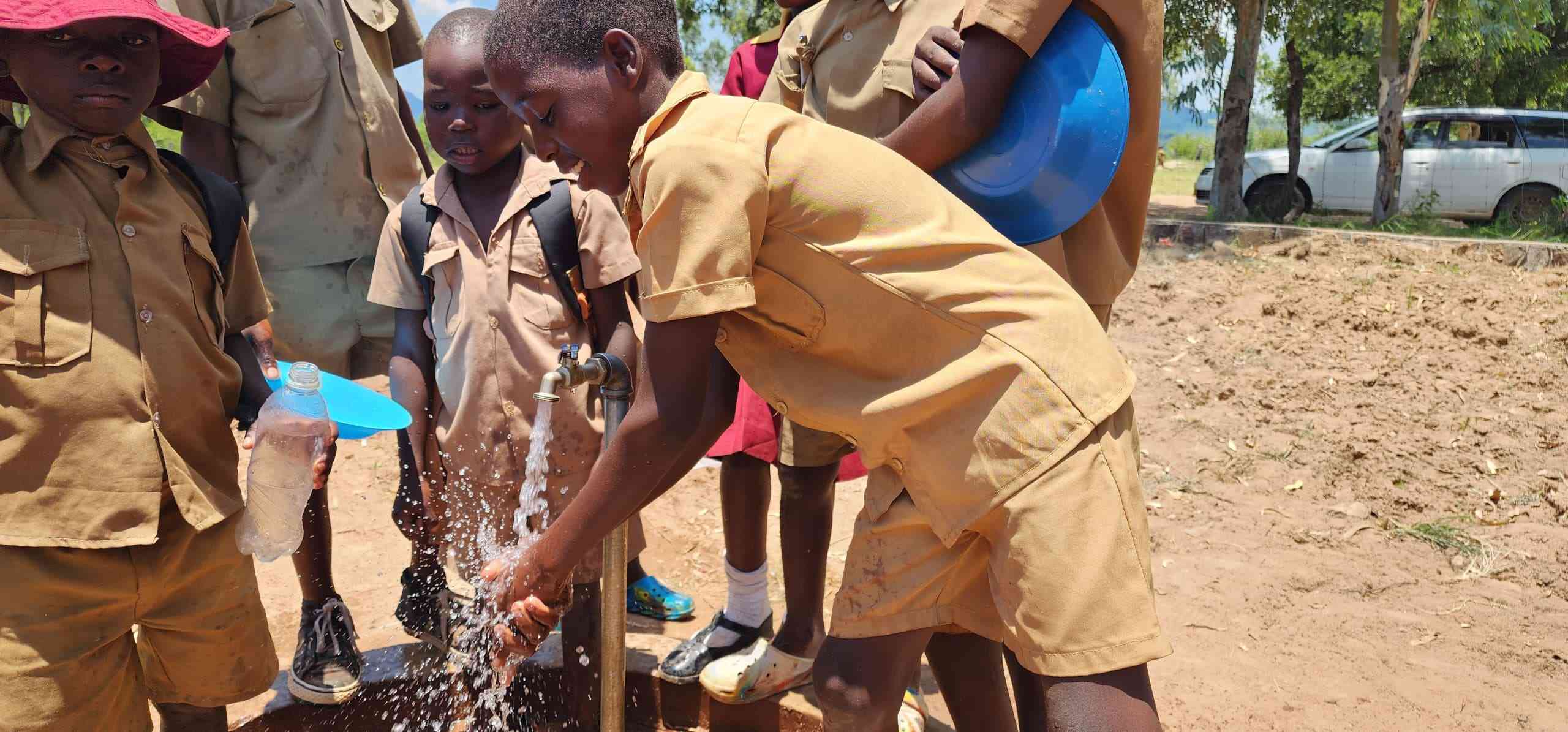
Three years ago, a shadow loomed over Charingeno Primary, a school established in 1941 amidst the sun-baked plains of Zaka District. Headmistress Mary Mukwenha remembers it vividly; a “horror situation” where villagers and students alike thronged the lone borehole, their desperate thirst creating a bottleneck that choked not only progress but also hygiene.
But then, in March 2022, a wave of hope washed over the parched community. A pump water system sprang forth, its lifeblood coursing through multiple water points within the school premises, villages and nearby shopping centre.
This transformative solution not only decongested the school’s thirst, but also quenched the needs of the surrounding villages and even the distant Chimpimbiri township, some 350km away from the capital’s embrace.
The water project was brought forth by the ministry of Primary and Secondary Education, in collaboration with Unicef, with funding from the UK government and Christian Care as the implementing partner.
The water scheme is powered by a solar system provided by Unicef, under the water, sanitation and hygiene (Wash) schools improvement grant programme.
Gone were the days of jostling crowds, skipping lessons and the spectre of waterborne woes.
“The school’s water programme has become a vital resource, not just for the students but for the entire community,” Mukwenha spoke, her voice etched with the weariness of the relentless sun. With a weathered hand, she swiped at the rivulets of sweat tracing down her brow.
“Villagers and school kids would converge at the then sole borehole and eat up learning time and also it exposed us to waterborne diseases.
- Villagers bemoan politicisation of aid
- From ‘horror situation’ to hope: Charingeno Primary School transforms with new water system
Keep Reading
“Our students would also skip lessons whilst fetching for water. After the water system was installed we haven’t received any cases of cholera.”
But the magic of water didn’t stop there. Its ready availability, the school bloomed with nutrition gardens, an orchard bursting with fruits, and a fishpond teeming with life. These, in turn, nourished the young minds entrusted to Mukwenha’s care.
“Due to the accessibility of water we have come up with nutrition gardens, an orchard and also a fishery project. We are using these to sustain our school feeding programme whereby we feed all the pupils when they come to school. That way it fights hunger within the school and the food also motivates the learner to come to school,” she said.
Taungana Ndoro, the director of communications and advocacy in the Ministry of Primary and Secondary Education applauded the school’s water project.
“It is very clear that the government and development partners such as Unicef’s efforts to provide water sanitation and hygiene and boreholes at this school have ensured that students don’t skip lessons and also the water system has also served the surrounding communities. The water project has led to the establishment of sustainable nutrition gardens, fishery projects, and an orchard for the schools’ food security and feeding programme,” he said.
Unicef has continued to increase access to water by drilling new boreholes and rehabilitating defunct pipe water schemes and boreholes in rural areas.
The United Nations agency’s water, sanitation and hygiene team works in over 100 countries worldwide to improve water sanitation services, as well as basic hygiene practices.










